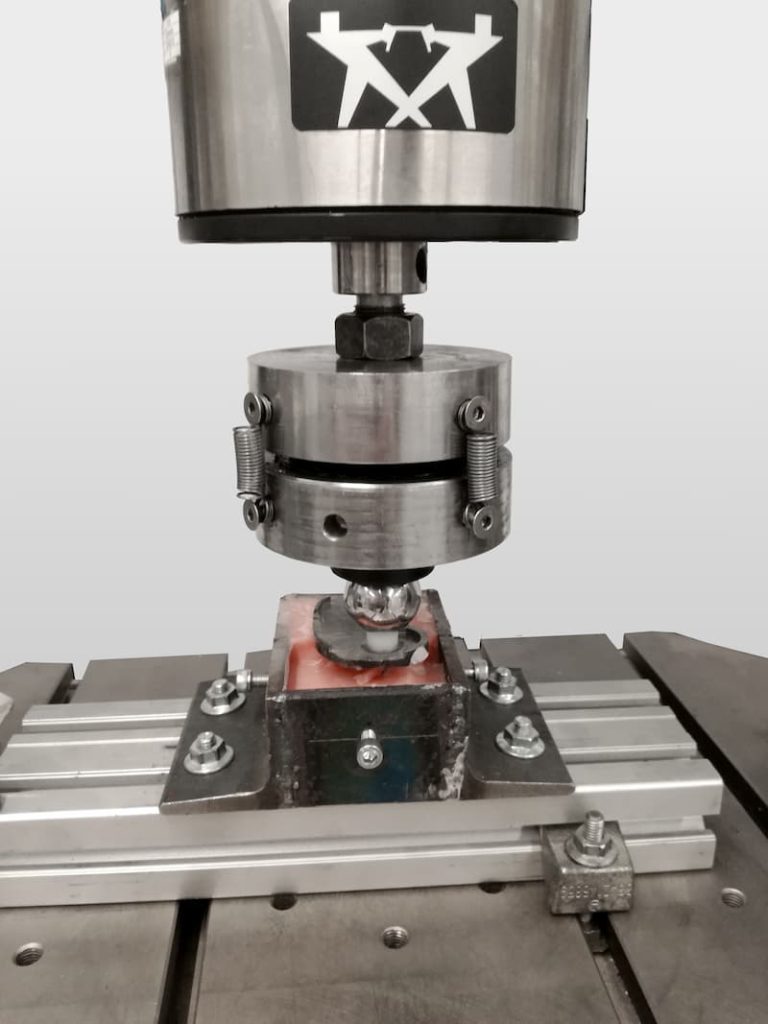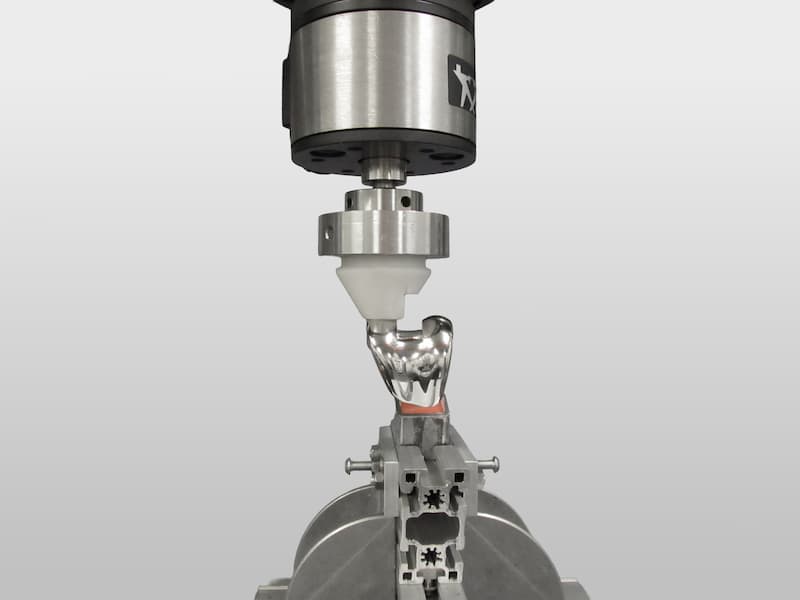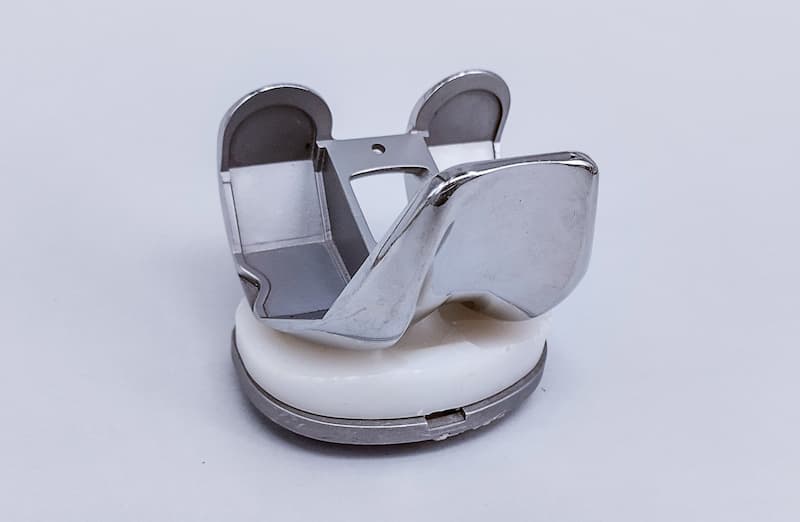KNEE IMPLANT TESTING
At the Instituto de Biomecánica (IBV), we carry out tests for the evaluation of knee implants, analyzing their structural strength, biomechanical performance, and mechanical stability under real-use conditions.
Knee implants must withstand high loads and repetitive movements to ensure durability and safety in the joint. At IBV, we perform specific tests that allow manufacturers to optimize design, improve biomechanics, and validate new materials prior to certification and commercialization.
In addition to delivering results on implant conformity, we provide technical recommendations to enhance functionality and ensure long-term reliability.

TIBIAL TRAY TESTING IN KNEE IMPLANTS
The tibial tray is a key component in total knee prostheses, as it supports the load from the femoral component and transmits forces to the tibia. At IBV, we conduct tests to evaluate its structural strength and stability.
- Fatigue resistance testing for tibial trays (ISO 14879-1): Determines the resistance of the tibial tray under prolonged cyclic loads.
- Mechanical stability evaluation: Analyzes the tray’s behavior under different load conditions.
- Material integrity and tibial insert compatibility tests: Evaluates fixation and durability of the materials used.
These tests validate the structural performance of the tibial tray and ensure its durability in knee prostheses.


FEMORAL COMPONENT TESTING IN KNEE PROSTHESES
The femoral component in knee prostheses is designed to articulate with the tibial tray and enable physiological joint movement. IBV performs tests to assess fatigue resistance and stability under repetitive loading conditions.
- Fatigue testing for femoral components (ASTM F3210): Simulates mechanical loading to evaluate fatigue resistance in real-use conditions.
- Wear and friction tests: Analyzes material degradation after multiple flexion-extension cycles.
- Contact stability evaluation: Determines resistance to loosening and wear at the femoral–tibial interface.
These tests ensure that the femoral component maintains its functionality and stability over time.
WEAR AND FRICTION TESTING IN KNEE IMPLANTS
Wear is a critical factor in the longevity of knee implants. At IBV, we carry out specific tests to determine material resistance to friction and long-term contact.
- Wear testing in knee prostheses (ASTM F732): Evaluates material loss and wear resistance in different friction pairings.
- Dynamic loading simulation under physiological conditions: Friction testing under real loading to assess material degradation.
- Surface deterioration and long-term stability analysis: Studies wear across different prosthesis configurations.
These tests ensure that knee implant materials retain their functionality and avoid premature degradation.

WHY CHOOSE IBV FOR KNEE IMPLANT TESTING
Evaluating a knee implant goes beyond meeting basic regulatory requirements — it requires a comprehensive approach that combines mechanical, biomechanical, and clinical interaction testing.
At IBV we offer:
- Mechanical testing laboratory: Load, fatigue, and structural resistance tests on knee implants.
- Human movement laboratory: Biomechanical analysis applied to the stability and functionality of implants under simulated conditions.
- Specialized team in biomechanics and orthopedic materials.
- Manufacturer-specific methodology: Customized testing based on implant design and materials.
- Strategic analysis: We offer technical recommendations to optimize implant performance prior to market launch.
Contact our technical team
Discover how our testing services can help you assess the conformity of your knee implants before certification and commercialization.

